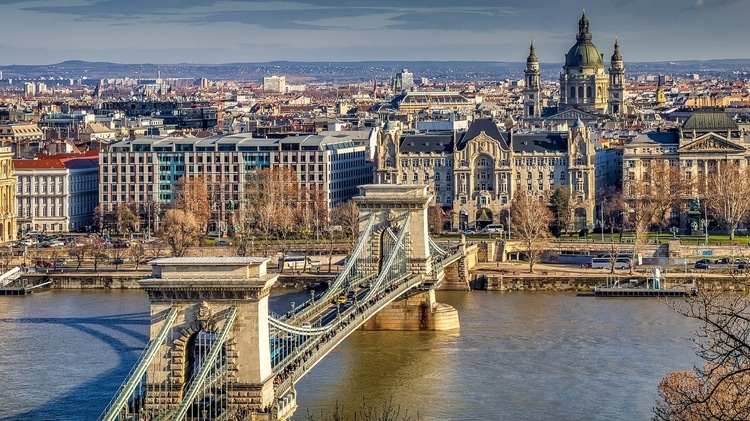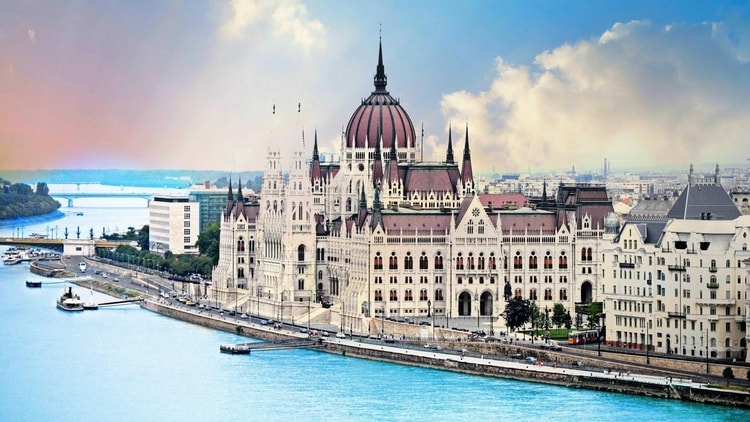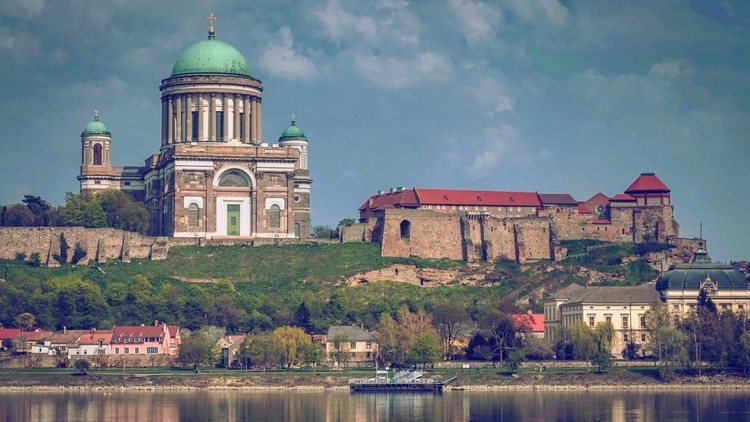What To Expect
Hungary is a very popular country for travelers in Europe for one big reason: Budapest. The capital of the country is one of the top destinations in all of Europe and attracts millions of tourists every year.
Budapest is a world-class city with beautiful and historic architecture, some of the best nightlife in Europe, and so many things to see and do for all travelers. Take in all the main sights like the Hungarian Parliament Building, Buda Castle, St Stephen’s Basilica, Heroes Square, and the Széchenyi Thermal Baths while enjoying some of the finest Hungarian cuisine.
However, Budapest isn’t all that Hungary has to offer! There is more to the country that is worth experiencing and those that venture out of its capital are rewarded with charming cities, the most popular being Eger, Pecs, Debrecen, and Esztergom, as well as beautiful scenery, specifically Lake Balaton and the Bakony Hills.
Getting around the country is fairly easy and it is very accustomed to tourism, especially in Budapest, making it very tourist-friendly. So whether you only stick to the capital or you choose to venture off the beaten path and explore the rest of the country, Hungary is a great choice for your travels!

Hungary is part of the Schengen Area which has a single visa policy for all the countries that are in it. Citizens of most developed countries can enter the Schengen Area visa-free for up to 90 days in a 180 day period. If you are not a citizen of a visa-exempt country, you must go to the nearest Hungarian embassy and apply for a Schengen Visa to be granted entry.
The Hepatitis A vaccine is recommended, especially if traveling to rural areas. Also make sure you are up to date on your standard vaccinations and consult a health professional for further advice.

Key Information
Population: 9.5 Million
Capital City: Budapest
Languages Spoken: Hungarian
Currency: Hungarian Forint (HUF/Ft)
State Railway: MAV
Driving Side: Right
Largest Airports:
1. Budapest (BUD) – Ferenc Liszt
2. Debrecen (DEB)
Best Time To Visit
Hungary has a temperate continental climate with warm summers and cold winters. However, the eastern and mountainous regions are a little chillier than the rest of the country.
Therefore, the best time to visit Hungary is during its shoulder seasons (April – May & September – October) when you aren’t surrounded by a million other tourists and the weather is not too hot, but not too cold either. Your transportation & accommodation will also be cheaper and you won’t have to wait in long line-ups when visiting some of the main attractions.
However, if you are visiting the eastern or mountainous parts of the country, or you just want to have the best weather possible, then the summer (June – August) is the best time to visit. Keep in mind though that this is the most popular time to visit so expect to see lots of crowds and try to book your transportation and accommodation in advance to avoid sold-out tickets and fully-booked rooms.
High Season: June – August
Low Season: November – March
Top 5 Destinations

Budapest

Lake Balaton

Eger

Pecs

Debrecen
Currency Information

The currency used in Hungary is the Hungarian Forint (HUF/Ft).
The notes come in denominations of 500 Ft, 1000 Ft, 2000 Ft, 5000 Ft, 10,000 Ft, & 20,000 Ft whereas the coins come in denominations of 5 Ft, 10 Ft, 20 Ft, 50 Ft, 100 Ft, & 200 Ft.
Use the currency converter below to determine the latest exchange rate.
Tipping Guide
Tipping is customary in Hungary, especially for good service. Here are some important guidelines to follow:
Hotel Bellhops: 200-500 Ft per bag
Hotel Housekeepers: not expected, but 500 Ft at the end of your stay is appreciated
Restaurant Servers: check the menu and bill to see if a service charge (“szervízdíj” in Hungarian) is already included and if not, then tip 10-15% of the total bill
Bartenders: round up to the nearest multiple of 100
Taxi/Uber Driver: round up to the nearest multiple of 100
Tour Guide: up to 10% of the total tour price on single-day tours and up to 1000 Ft per day on multi-day tours
Note: tips should be left in cash and given directly to the person you want to receive them when you pay your bill.
Power Outlet Information


Just like most of Europe, Hungary mainly uses the Type C power outlet. In addition, they also use the Type F outlet.
Type C & E plugs can fit in a Type F outlet as long as they are compatible. Make sure your Type C adapter is oval-shaped or you have a Type E/F adapter.
Get your compatible Type C & Type E/F adapter here.
The voltage used in Hungary is 230V. Learn more about how this may affect your electronic devices in my Guide to the Top Travel Accessories.

Cellphone Information
Hungary has excellent overall 4G LTE coverage so it is very unlikely that you will ever need to use their 3G networks, but it doesn’t hurt to be safe anyways. Make sure your phone is GSM-compatible with at least one of the 3G frequencies and the primary 4G LTE band used in the country to ensure you will always have a connection.
Learn more about this in my Guide to Travel-Ready Phones.
Information about local prepaid SIM cards in Hungary
Calling Code: +36
Emergency Number: 112 (Police, Ambulance, & Fire)
3G Frequencies Used: 2100 & 900
4G LTE Bands Used: 3 (primary) + 1, 7, & 20


